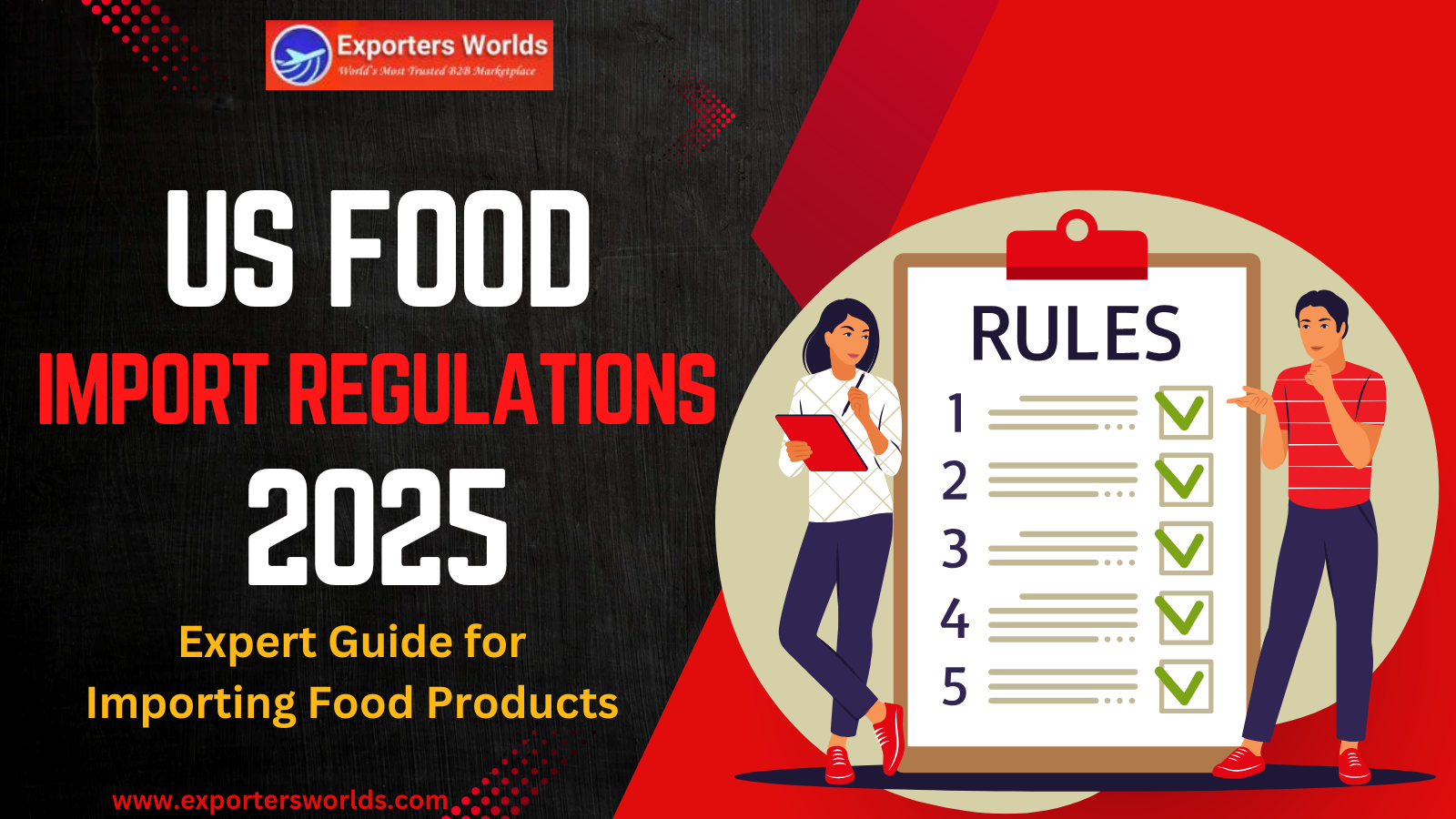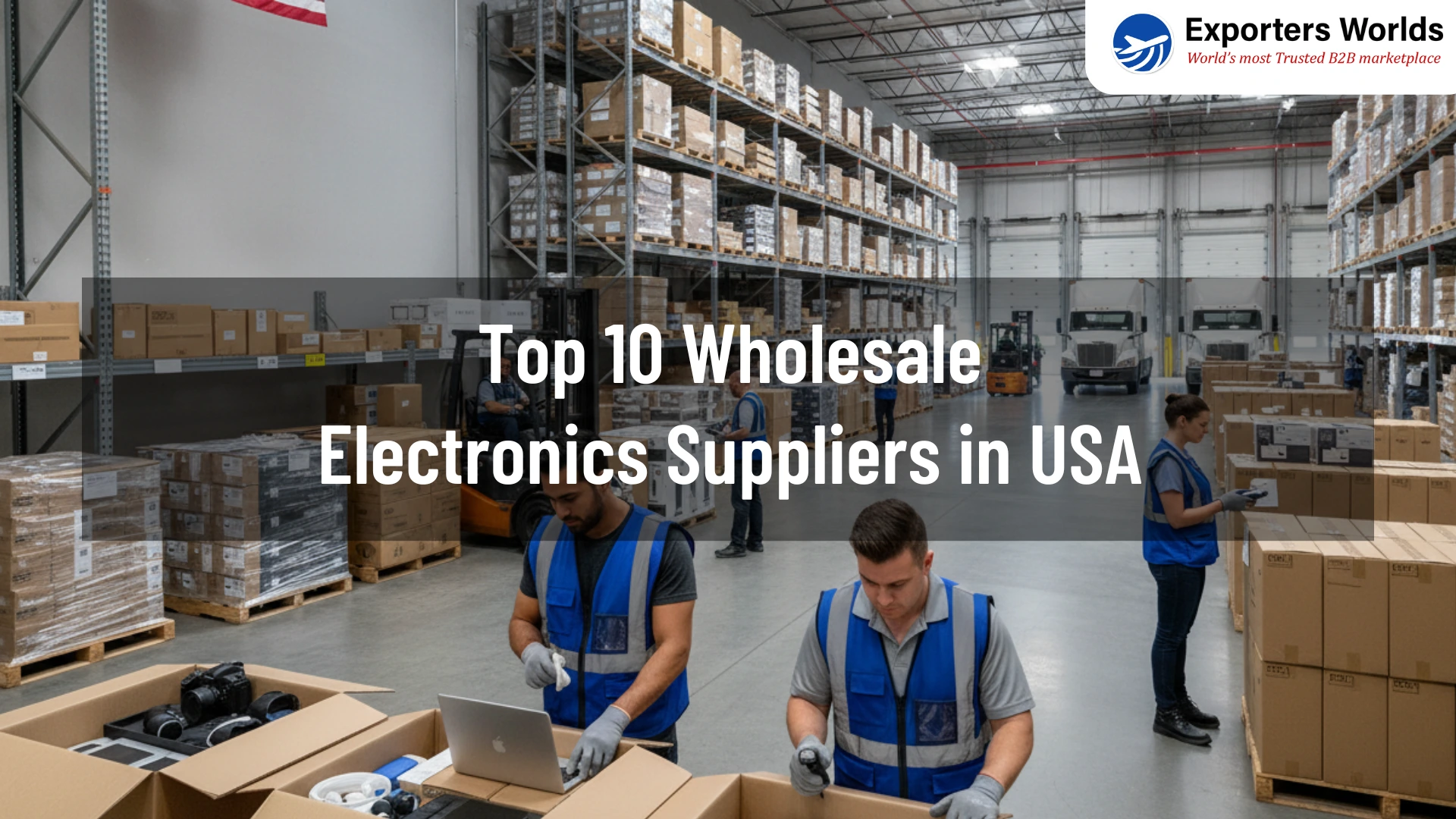US Food Import Regulations: An Expert Guide (2025)

Overview
Importing food products into the United States is a profitable business, but it requires strict compliance with regulations set by the Food and Drug Administration (FDA), the U.S. Department of Agriculture (USDA), and other governing bodies. Failing to follow these rules can lead to delays, fines, or even the rejection of shipments.
At Exporters Worlds, we specialize in connecting global suppliers with buyers in the U.S., ensuring smooth and successful transactions. In this guide we will explore essential steps and regulations for importing food products into the United States in 2025.
The Irresistible Opportunity of the US Food Market
The U.S. is one of the world's largest importers of food products, driven by its diverse population and high demand for international markets. With the right strategy and compliance, businesses can tap into this market and achieve significant growth.
General US Food Import Regulations
1. Research Your Product
Before importing, verify if your food product falls under the FDA, USDA, or other regulatory bodies’ jurisdiction. Certain items like dairy, meat, and seafood have specific rules that may require additional permits.
2. Submit a Prior Notice to the FDA
The FDA requires importers to submit a prior notice before shipping food products to the U.S. This helps authorities track and inspect shipments efficiently.
3. Register Foreign Facilities with the FDA
If you are a foreign food manufacturer, you must register your facility with the FDA. This is a crucial step to ensure compliance with the Food Safety Modernization Act (FSMA).
4. Label Your Food Correctly
Proper labeling is essential for U.S. imports. Your labels must include:
· English language descriptions
· Ingredient list
· Nutrition facts panel
· Allergen declaration (if applicable)
· Country of origin
· Manufacturer’s details
5. Know Your Incoterms
Incoterms (International Commercial Terms) define the responsibilities of buyers and sellers in international trade. Understanding these terms helps in avoiding misunderstandings and unexpected costs during shipping.
6. Gather Essential Documentation
Proper documentation ensures your food shipment clears customs smoothly. Essential documents include:
· Bill of Lading: A transport document issued by the carrier.
· Commercial Invoice: Lists the product details, price, and seller-buyer information.
· Packing List: Describes the packaging, weight, and dimensions.
· Customs Bond: Required for shipments over $2,500 to ensure compliance.
· Entry Summary (CBP Form 7501): Submitted to U.S. Customs for duty assessment.
7. Work with an Expert (Optional but Recommended)
Navigating food import regulations can be complex. Hiring a customs broker or import consultant can simplify the process, reduce risks, and ensure smooth transactions.
8. Regularly Update Yourself
Regulations frequently change. Stay informed by following FDA, USDA, and Exporters Worlds updates to keep your business compliant.
Specific Regulations Based on Type of Food
Different food categories have varying requirements:
· Meat, poultry, and egg products must comply with the USDA's Food Safety and Inspection Service (FSIS).
· Seafood: Subject to FDA’s HACCP (Hazard Analysis and Critical Control Point) requirements.
· Dairy: needs special USDA permits.
· Fresh produce: must meet USDA and Animal and Plant Health Inspection Service (APHIS) standards.
Exporting Food from the U.S.
If you are looking to export food from the U.S., similar regulations apply in reverse. Understanding the destination country’s requirements is key to successful transactions.
Make the Most of Opportunities in the US Market
Navigating U.S. food import regulations may seem overwhelming, but with the right guidance, it can be a seamless process. Exporters Worlds is here to help you connect with trusted buyers, handle compliance, and ensure a hassle-free experience. Let us handle the hard work so you can focus on growing your business.
Additional Resources
For more details, refer to these official resources:
· FDA Food Import Page
· APHIS Permits
· FSIS Importer Checklist
FAQs for US Food Import Regulations
1. Do I need a license to import food to the USA?
No general license is required, but you must comply with FDA registration and regulations based on the product type.
2. What are the US's major food imports?
Major food imports include seafood, fruits, vegetables, dairy products, coffee, and processed foods.
3. How do I import products to the USA?
Follow these steps:
· Register your foreign facility (if applicable)
· Submit Prior Notice to FDA
· Ensure proper labeling and documentation
· Use a customs broker if needed
· Stay updated with changing regulations
For expert assistance, connect with Exporters Worlds, your trusted B2B marketplace partner for seamless food imports into the U.S.!




